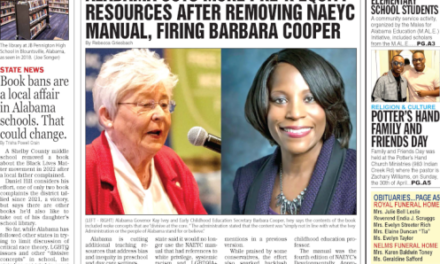This is an opinion column.
“We can’t afford that.”
It’s a phrase I heard often growing up. Not because we were poor; my family was decidedly middle-class. But my parents knew that the key to long-term economic stability was living within our means. When my parents said “we can’t afford that,” they didn’t always mean that we truly couldn’t pay for the good or service desired. They meant that it didn’t make sense.
My father did grow up poor. And in trying to move from one economic rung to the next, he understood that he had to generate every professional and financial advancement for himself by the sweat of his brow. When he decided to be the first in his family to go to college, it never even crossed his mind to pack a trunk and head off to a four-year institution. He didn’t have the money to pay for it, and besides, there was a junior college nearby that would allow him to work full-time and take classes at night at a fraction of the cost. So he did.
For all his many faults, George Wallace did make higher education accessible to the working class in Alabama by putting a junior college on every corner. I do wish he had avoided vainly naming most of them “Wallace.” But I digress.
My father worked his way through junior college, then sold his car to muster the first quarter of tuition he would need as a transfer student at Auburn University. He hitchhiked to get there. Once there, he found a mixed bag of part-time jobs to survive, and he lived lean. He graduated with a degree in Agribusiness Education and taught for more than 40 years. Along the way, he paid for his graduate degrees and for my mother to get her own bachelor’s and master’s degrees.
When it came time for my brothers and me to make college choices, we knew that this legacy of pragmatism would govern what our parents would allow. Both of my brothers attended community college before transferring to Auburn and worked–a lot. I was the only one allowed to go to a four-year school as a freshman, only because I had been fortunate enough to secure a substantial merit scholarship. I also worked summers and even during the school year as an upperclassman.
What does all this have to do with student loan forgiveness? Everything.
When did we decide to encourage students toward the most attractive educational option, regardless of resources and circumstances? This idea of pursuing a “dream school” even when it makes little economic sense? As a high school senior, I had exceptional grades and test scores and a stellar resume–I likely could have gotten into an elite private school. When my test scores got into the system, those schools buried me in their glossy, ivy-covered mailers. I would read the brochures and daydream.
But I could not afford it, and it was not necessary to achieve professional success or satisfaction in life. My parents made just enough money to keep us north of the “financial need” line but not enough to pay for private school tuition. It never crossed our minds to borrow tens of thousands of dollars to finance what was nice but unnecessary.
Everyone in my family graduated from college debt-free. And it wasn’t because we were wealthy. It was because we made responsible, reasonable choices and worked hard.
Because of the federal government’s penchant for handing out student loan cash like a drunk sailor on leave, we have a generation of Americans saddled with debts that were stupid to incur and that seem impossible to repay. What’s worse: the crack cocaine of all this federal money has allowed colleges to jack up the cost of education through the roof. Since 1980, inflation has increased by 236 percent. The cost of a college education has risen by more than 1,200 percent.
If not for all the federal student loan money flowing through borrowing students into the college coffers, the market wouldn’t have born that increase.
So the federal student loan racket has hurt everyone–even those with rudimentary math skills and the self-control to say to themselves, “we can’t afford that.” If you work and pay for education as you go, you pay far more because of this federal spending boondoggle.
The only way we could make this worse is to cancel those debts across the board now, as the Biden administration is threatening to do. The responsible will bear the cost of others’ folly yet again with their tax dollars. Those who worked hard and sacrificed to repay their loans will feel cheated, for good reason.
Millennials drowning in student loan debt often cry that it was unethical to allow them to sign on the dotted line for such a massive loan at 18 years old. They’re not entirely wrong. Student loans are too easy to acquire. The process lacks a sit down with a loan officer of sorts whose job it should be to assess the student’s ability to repay, given their academic record and educational/career plan. What a strong student intent on majoring in engineering can repay after graduation is wildly different from what an aspiring liberal arts major with sketchy grades may be able to repay. The current student lending process doesn’t properly account for these factors.
Can you imagine having a business idea, strolling into the bank with no real business plan, and expecting them to front you $100k? No. Because when it’s private money, people acknowledge that gravity is real, and there are limitations on what reasonably can be repaid. Private capital doesn’t take stupid risks. Not repeatedly, anyway. And if repeatedly, not for long.
If we want to right the ship of student loan debt, the first step must be to reform the application process, making loans harder to get and thus less tempting to those with undeveloped prefrontal cortexes. We must place limitations on colleges and universities who get fat off federal cash by capping the rate at which they can raise tuition and fees if they want to receive federal funds. Only then should we look at debt forgiveness, and that forgiveness shouldn’t be granted across the board, benefitting people with higher incomes who don’t want to sacrifice their lifestyles to pay down the debt. One-third of student loan debt in this country is held by households in the richest 20 percent.
Don’t drive your kids to a private school in a $70k SUV and cry to me about your law school debt.
Life is about choices, and choices have consequences. Those are the lessons Americans have gotten away from and must relearn. If we fail to reform student lending and simply cancel debts owed, we will have taught the opposite of that.











